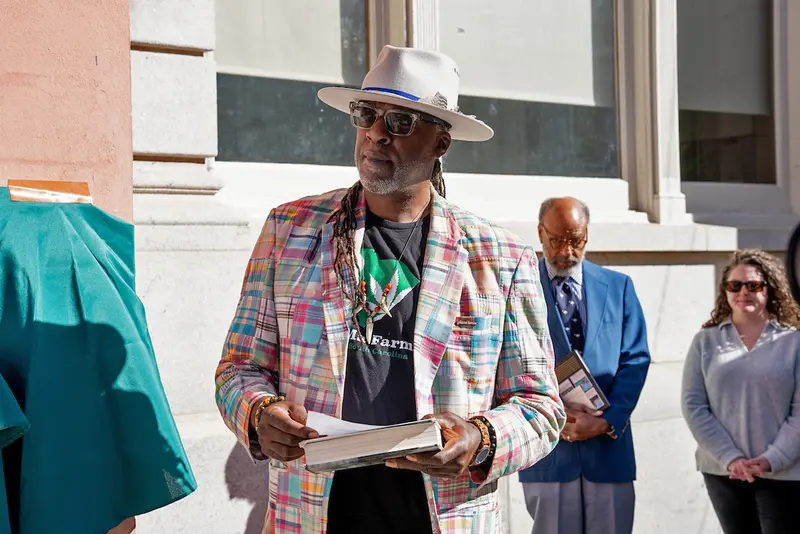Belgium is approaching the 30th anniversary of the start of a dark chapter in its history in which pedophile Marc Dutroux abducted six young girls from June 1995 to August 1996.
Imprisoning them in the basement of his house in the former coal-mining town of Marcinelle, the convicted sex offender tortured and sexually abused his young victims, killing four of them.
Mélissa Russo and Julie Lejeune, who were just eight years old, died of starvation and dehydration, while An Marchal, 17, and Eefje Lambrecks, 19, were buried alive. Sabine Dardenne, 12, and Laetitia Delhez, 14, were freed following Dutroux’s arrest in August 1996.
In a bold cinematic move, Belgian director Fabrice du Welz revisits the case in high-octane crime thriller Maldoror, which weaves in details of the real affair with the fictitious journey of a young police officer played by Anthony Bajon (The Prayer, Junkyard Dog).
“I was about 20 when the Marc Dutroux Affair broke in Belgium,” explains the director. “I’ve wanted to make a film inspired by the case for a long time. It was symptomatic of a certain disorder and chaos that prevailed in Belgium at the time.”
“It took me time to find the right approach. There was absolutely no question of showing the kids in the cellar, or unwittingly making some sort of portrait about this monster. I needed to find an angle that was morally irreproachable.”
Maldoror, which is playing at the BFI London Film Festival this week, taps into public fury over the handling of the case amid allegations that rivalry between federal and local police forces had hindered the initial investigation into the disappearances, allowing Dutroux to carry on his crimes in plain sight.
Du Welz took inspiration from the way Quentin Tarantino tackled the real-life murder of Sharon Tate and her friends in 1969 by members of the Manson Family in Once Upon Time… In Hollywood, by twisting history for a different outcome.

Fabrice du Welz
Getty Images
“Ahead of being a cineaste, I am cinephile,” says du Welz. “I was obsessed with Once Upon A Time… In Hollywood. Something clicked. The subjects have nothing in common but what Tarantino managed to do was rewrite history to create a film of catharsis and reconciliation.”
“It completely freed me but at the same time the work was very, very intense and precise with regards to the context. With my co-writer Domenico La Porta, we read practically everything we get our hands on about the case. Our documentation work was exhaustive. The context had to be impeccable.”
This desire to capture the context authentically also resulted in du Welz moving away from the stylized aesthetic of past genre films such as Calvaire, Colt 45 and Adoration.
“I wanted the film to be close to a documentary, close to reality,” says du Welz
“For once, I tried to make a film that is very, very free of my influences,” he continues, saying Maldoror marks rupture with his previous films. “I’m a compulsive movie buff, but I tried to keep this human and not be smart with the camera.
Du Welz’s research also involved spending time in Marcinelle, and the city of Charleroi to which it is attached. The faded, post-industrial feel of the once prosperous area is woven into the film.
“Charleroi is a bit like Detroit. It was one of the wealthiest cities in Europe in the 19th century because of the mines. It’s a strange, strange city that I also love it as a place,” says the director.
It was when he started to travel to Charleroi to scout locations, and later work on pre-production, that Brussels-based du Welz came to understand the depth of the scars left by the Dutroux Affair.
“What happened in the 1990s still weighs heavily on the population. This increased my vigilance and sense of responsibility. Charleroi became one of the characters. I wanted to make a film that the local people could feel proud of. That was my main challenge,” he says.
“At first, when we would say we’re making a movie inspired by the Dutroux Affair, everyone would refuse to talk, but when we explained in more depth, they couldn’t stop talking. There was so much to say. They’d kept so much inside because they had been so stamped on and humiliated at the time… like much of the Belgian population. This difference between how the Belgian justice system lived this affair, and how the Belgian people lived it, is something we tried to show in the film.”

Anthony Bajon in Maldoror
Frakas Productions, The Jokers Films
Bajon plays the fictitious figure of Paul Chartier, a determined young police officer whose own difficult childhood makes him particularly sensitive to the abuse of children and young people. When two girls go missing he is assigned to a surveillance operation called Maldoror tracking potential suspects.
Chartier’s journey touches on aspects of the real-life case, such as leads being left unexplored due to the stand-off between federal and local police, and the fact that police searched Dutroux’s house three times but failed to uncover the basement prison, even though one officer claimed to have heard children’s voices.
“My aim wasn’t to make a film about the Dutroux Affair, but rather the best police thriller I could which also offers the country a type of popular catharsis… so we can bring an end to this affair which still isn’t over, or resolved,” says du Welz.
Bajon is joined in the cast by Alexis Manenti, as Paul Chartier’s his easy-going colleague, and Alba Gaïa Bellugi as the young police officer’s fiancée who hails from Marcinelle’s large community with Sicilian roots. This community was touched by the real-life crimes in that the father of one of victims, Mélissa Russo, was a second-generation Sicilian, although he was born and bred in Belgium.

Anthony Bajon, Alexis Manenti
Getty Images
“I wanted to anchor the film in a social economic context which was extremely realistic, even if I allowed myself to be free with the story.” says du Welz.
“It gave a very human counterpoint since the film deals with unspeakable evil. I wanted the film to open on something which is very warm, very human, this popular marriage, where these people welcome this kid, Paul Chartier, as one of their own.”
Chartier’s increasingly obsessed search for the truth will see him challenge his superiors, be the target of trained assassins and then ultimately take justice into his own hands, with the crime thriller delivering twists right up until the final scene.
The film also touches on theories in the real-life case that Dutroux was part of a larger paedophile ring with connections to high-ranking figures.
These rumors slowed down the pre-trial investigation, with it taking eight years to bring Dutroux to the dock. The delay fuelled rumors of a cover-up and political interference in the judiciary, which in turn led to changes to rules in the Belgian constitution governing the appointment of judges.
“I’m first and foremost a filmmaker and it’s a fiction film. In real-life, there were two theories, that of the network and that of the lone predator. At the trial, the theory of the lone predator was upheld,” he says.
“But having examined some of the dossiers, it’s evident that a network existed. At the very least, there were three people involved in moving the kids around. I don’t know if there was a larger network. I’m not a journalist or a conspiracy theorist.”
“I’ve tried to make film, which is as documented as possible, at the same time as being as spectacular as possible, with a deep attention to reality and the human aspects.”
Other members of the cast include long-time friends and collaborators Lubna Azabal and Béatrice Dalle, with whom du Welz made the bio-doc The Passion According To Béatrice, charting her trip to Italy in footsteps of Pier Paolo Pasolini.
The film is produced by Belgium’s Frakas Productions and France’s The Jokers Films and sold internationally by WTFilms.
It is due to hit theatres in Belgium early 2025 and Du Welz hopes the release will stir up further debate and reflection on the Dutroux case and what it said about the state of the country at the time.
“The Dutroux Affair shook the Belgian constitution and profoundly impacted the Belgian people,” he says. “I think people from my generation still have a lot of questions.
Certain details in the fictional drama are likely to cause controversy such as the fact that a ruthless assassin on Chartier’s tail has a tattoo associated with the Belgium’s Para-Commando Brigade, which was disbanded in 2003.
Du Welz acknowledges it’s a provocative detail but says he is not trying to put out any sort of theory.
“I’m not a politician, I am just simply trying to tie up my story as well as possible with the all the elements in my documentation. Is it a provocation? Probably a bit, but that’s healthy. It’s my job to set the cat among the pigeons and to offer a film which nourishes the debate,” he says.
In the meantime, du Welz has been travelling with the film internationally. Having world premiered out of competition in Venice in September, the film has since shown at Zurich and is playing sold-out screenings at the BFI London Film Festival this week and Ghent.
Du Welz hopes Maldoror will be the first film in a trilogy exploring the darkest chapters of Belgian history. Development on the second film is already under way. Entitled Rubber, it explores the “barbarism” of the early years of the rubber trade in the Congo, during which the local population was violently coerced into working in rubber collection.
The third film will examine collaboration between Belgians and Nazi Germany during WW2 on the Western Front.
“These are heavy subjects but I really want to explore them, but yet again through genre cinema, whether it’s crime-thriller like Maldoror, an adventure film for Rubber, or a war film for the third one,” says Du Welz. “At least that’s my ambition, let’s see how it pans out. The main thing is that my way of thinking about and making films has changed.”







